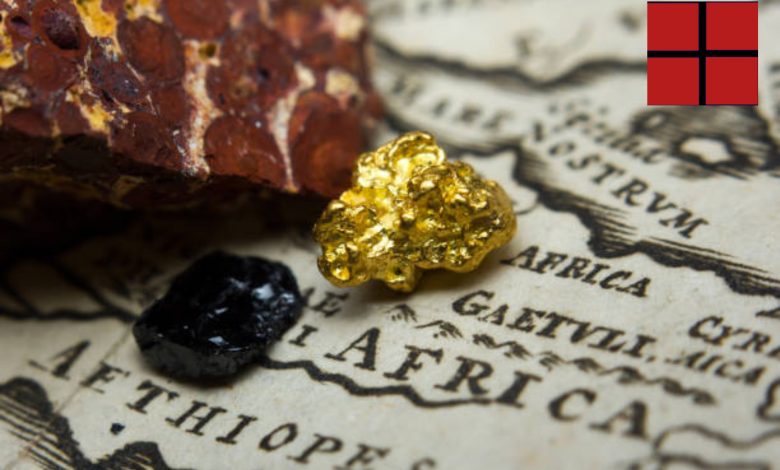Argumentative Essay: African Countries Should Be Blamed For Their Underdevelopment

When writing an argumentative essay on sensitive issues such as that African countries should be blamed for their underdevelopment, one might become too emotional with the topic especially when you are an African. You would want to put all the blame on the external factors of the Europeans and mention activities such as slavery and many other ways that the African countries have been exploited both directly and indirectly.
On the other hand, those from the supporting side might also want to become very defensive about the opposing side’s facts.
Essay Opposing That African Countries Should Be Blamed For Their Underdevelopment
Good day distinguished ladies and gentlemen, panel of judges and timekeepers,
Maybe I start by asking what underdevelopment is. Underdevelopment refers to a state where certain regions or countries lack adequate economic, social, and political development compared to others, often due to historical, institutional, or structural factors. When you say African countries are underdeveloped, I think it is too general. Is it economically, socially or politically? What yardstick should we use to measure the level of development and underdevelopment in African countries? Why is it that African countries should be blamed for their underdevelopment?
When you ask an average person from the Western World about their notion of Africa and its country, they still have this idea that Africa is still a forest with baboons and chimpanzees living there or the image of a suffering child and dumpsites. When you talk of development, do you also think of Morocco, South Africa, Seychelles, Egypt, Botswana, Mauritius and so many to be mentioned?
What is development? Julius Nyerere in 1967 says that Africans do not believe that development necessarily means tall buildings and modern things. Those are good but what we consider the most important component of development is human development—creating a man and a woman who has confidence, who is an agent for change and a catalyst for that which is good for him/herself and the society.
When we talk of development, we speak about GDPs, do we ever talk about the Gross National Happiness of the people? Many people think that tall buildings, the beauty of a city, are what development is. Not at all! The happiness of people living in that continent is what depicts that country’s development. For example, sometimes when I analyze how stressed people are in the Western world, many people are ready to commit suicide.
You can see the hidden, fake development as we only look into the beauty of cities and tall buildings, while people working in those buildings are stressed, dead people walking, aggressive to each other, just because they see themselves as little slaves, a special style of slavery where you are tele-commanded, no choice but accept to be a robot. When we go to European countries, they call us refugees but when they come to our countries, we call them tourists, why are they coming from so-called developed countries to the ones they have termed under-developed? We could indeed have done better in many areas and there are many reasons why we have been held back.
The typical postcolonial states in Africa are within the range of 60 years and above. It must be remembered that there have always been attempts to ensure that Africa does not realize its potential. A country like the Democratic Republic of Congo, which I can say is the richest resource country on Earth. No sooner had she gained her independence, the Belgians and the Americans were there confusing and that confusion is still alive today as I speak, the Eastern part of it which has numerous resources has no less than 120 militia groups. The Kinshasa government does not control it. They are not in control of their gold, they are not in control of their resources.
If you go to Southern Cameroon -The Ambazonia, people have not attended school for the past 7 years. We are witnesses to the recent happenings in Ethiopia, Somalia, Libya- the post-Gaddafi effect and Sudan as we speak today. So these are external factors that take advantage of internal contradictions with the consequences that Africa cannot do agriculture well, Africa cannot exploit her resources to engage in the pharmaceutical industry properly. Africa is not enjoying the dividends of the fourth industrial revolution; we are now going to the fifth industrial revolution.
We have become consumers of what we do not produce and producers of what we do not consume. Africa is still famous for producing primary goods with very little or minimum value addition yet the external exploitation of the Western states still has a larger influence in Africa. In other words, Africa in many ways is still laboring under the weight of foreign domination. Initially, it was the colonial powers from Europe, then after the wars we now see the Chinese are coming so strongly in countries like Zambia.
The modern states particularly, are the so-called Western states that have characteristics of the European, German, Dutch, British, Portuguese, Italians and Spaniards. They colonized these African countries as external territories of their countries and they were controlled from the metropolis. When these countries finally gained independence, the financial architecture that they inherited was alien and it was alien in the sense that the states were run based on taxation therefore it was assumed that if you taxed the resources of the people, they would be in a position to run the state.
In many African countries, they started with Pole Tax or Hard Tax which therefore became the source of financing affairs of the state. The state has many affairs, the defence, the civil service, importation of goods and services. So taxation became the major source of financing in many African nations but it soon emerged that the domestic resources that are obtained through taxation are not sufficient to take care of the needs of the society and this is how loans come about.
These loans come about because there are institutions that are deliberately created to lend money to countries and the colonial governments are the creators of these institutions so if you look at the IMF (International Monetary Banks) and the World Bank. These institutions were created after the Second World War mainly for the European countries that had been devastated by the war.
Later, African countries became drafted members of these institutions, we must always remember that we do not control these institutions but they are deliberately used to control us because as the saying goes the lender will remain the master of the borrower and because the International economic architecture is also alien to many African countries, we find ourselves playing a game that we do not understand and a game that we cannot control leading to indebtedness.
I think about Neocolonialism and the state of the neocolonialised. I am saddened because neocolonialism exists in an environment where you think you are free but not, and I think Kwame Nkrumah captured it well. He said that the colonialist does not change his character. What he does is to make different masks. Another person that normally comes to my mind when I think of Neocolonialism is Chinua Achebe, writing in 1958 as a 22-year-old young man, he wrote a book that has remained iconic. Things Fall Apart. The white man is very clever he says, he has come into our midst, we welcomed him, we thought he was our friend but he has put a knife on the neck of the things that have put us together and we have fallen apart.
You can see the lamentations from Things Fall Apart. Cultures are destroyed, and African societies are destroyed. When we talk of Neocolonialism, I always remember the words of Simon Kapuepue. He said that these colonizers who have become neocolonizers will one day come as foreign investors, and that is exactly what is happening. Apart from the French one, which is the worst, and they do not even pretend, there are other streams of Neocolonialism.
The French never left and where they were kicked out as in Guinea, Algeria, and Mali, they destroyed a lot of things. The French are more vicious and open because they control all levers both education, politics, economics and resources. The other brand is the British, they leave you to run your politics but how do they remain in our system, they remain controlling our economy, and banking system, and they train our armies. They appear to have gone but they are not too far.
We will not leave the issue of slavery and its after-effects, one of the largest tools that the Europeans used to dehumanize Africans and I still stand that Africans have been and are still used as a mere means to an end to develop the Western cultures. Are we still to blame?







